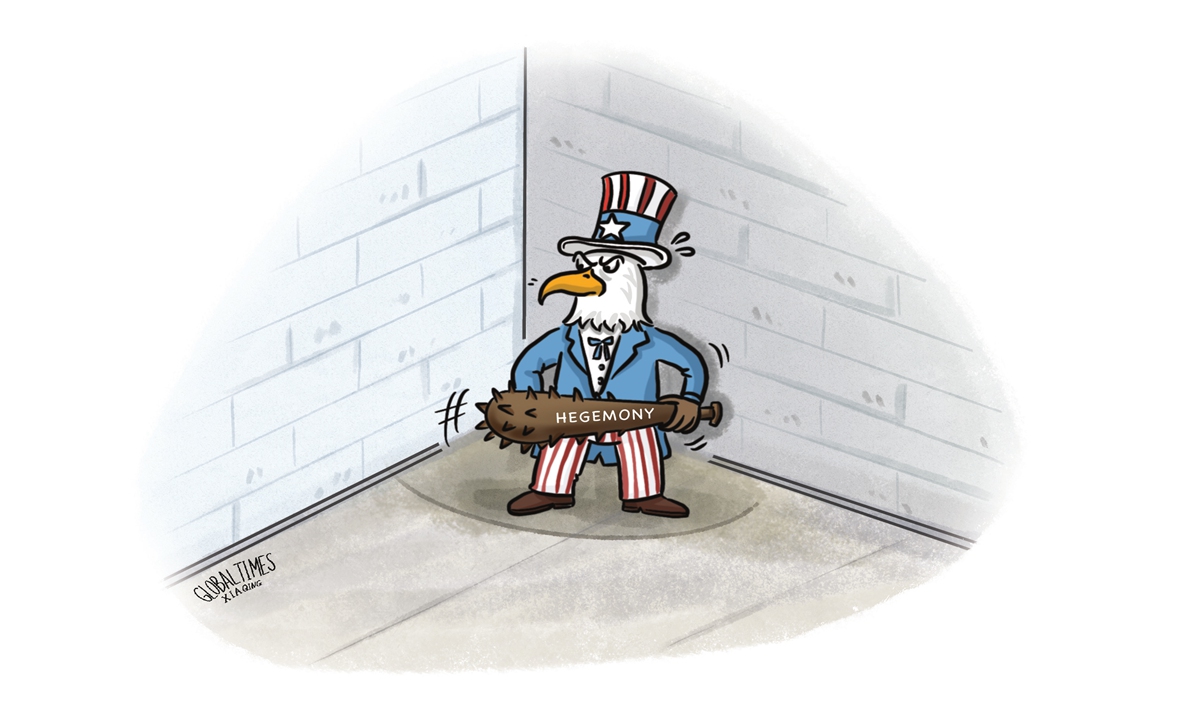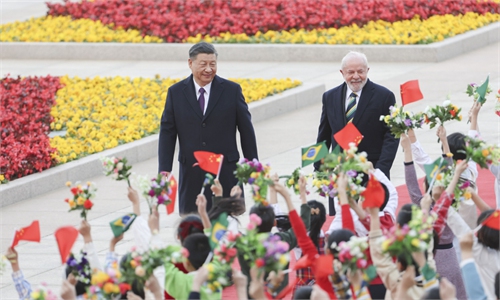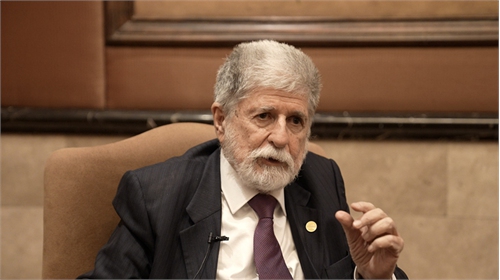
The Bully. Illustration: Xia Qing/GT
The White House on Monday sharply criticized Brazil after President Luiz Inacio Lula da Silva said during his visit to China last week that the US should stop "encouraging war" in Ukraine. "Brazil is parroting Russian and Chinese propaganda without at all looking at the facts," National Security Council spokesman John Kirby told reporters.
The Ukraine-Russia conflict has dragged on for over a year. It's difficult for any single country to play a determined role in promoting an end. Therefore, Lula hopes to encourage more countries to foster peace. Nevertheless, all the voices promoting peace are wrong and anti-American according to US logic.
On Sunday, Lula again proposed establishing a group of countries not involved in the Russia-Ukraine conflict to broker peace during his visit to the United Arab Emirates, adding that now it is important to create another kind of G20 to end this war and establish peace. This shows the independent thinking of Brazil as the largest South American country and a major developing power in a bid to contribute to solving international issues.
Lula is a responsible and insightful leader. The reason why the US became annoyed and blamed Brazil is that the US thinks Latin American countries, including Brazil, are solely its own backyard, and are not allowed to think and act on their own. Moreover, it is also because the US has been frustrated with its failure in its attempt to isolate Russia by provoking a conflict between Russia and Europe.
Now Europe has begun to reflect on the Ukraine crisis, and the voice of keeping away from the war is growing. In this case, the US is like one log that can't prop up a tottering building, especially alongside with a stronger voice of other major powers to call for peace.
The US originally planned to weaken Russia through the Ukraine crisis. For the US, the implementation of any peace proposals now is tantamount to recognition of Russia's vested interests, so the US is firmly opposed to a ceasefire, otherwise all its previous work will come to naught.
As shown in the latest leaked Pentagon documents, the US is also pessimistic about the state of the war in Ukraine. There is also growing opposition within the US to the support for this war. The US has fallen into an actual passive position from what it thought having an initiative at the beginning, so it has to keep fueling the war in such an awkward situation and has been reluctant to hear any rational voices.
Russia's Foreign Minister Sergey Lavrov visited the Brazilian capital on Monday and expressed gratitude for Brazil's push for an end to hostilities in Ukraine. According to Brazilian Foreign Minister Mauro Vieira, Russian President Vladimir Putin invited Lula to the St. Petersburg International Economic Forum, and the invitation was conveyed to Lula by Lavrov during their in-person meeting in the presidential residence.
There is a growing consensus among the great powers, indicating positive momentum. The proposed peace should definitely depend on the efforts of all or multiple countries. If more countries join in brokering peace, instead of adding fuels to the fire, the prospect of peace can become promising.
Multi-polarization is an inevitable trend and a common sense. The American magazine Foreign Policy published an article on March 10 saying that the US is "extremely afraid" of a multipolar world and is striving to maintain a unipolar order that no longer exists.
It is impossible for the US to rally multitudes to its call in a multipolar world as it did after the Cold War. The US' unipolar power no longer exists, and it should make it more adapted to other countries. Although the US still has the ability to lead blocs and NATO as its united front, the cracks in the so-called united front are getting bigger and bigger. France President Emmanuel Macron has already expressed his opinions, and there will certainly be more dissent voices among US allies.
The US should recognize that not all global issues can be simply solved by leading NATO or dominating a bloc. If it hopes that all the countries in the world parrot US propaganda on Ukraine, this is wishful thinking in a multipolar world.
The article is compiled by Global Times reporter Wang Zixuan based on an interview with Lü Xiang, a research fellow at the Chinese Academy of Social Sciences.opinion@globaltimes.com.cn


